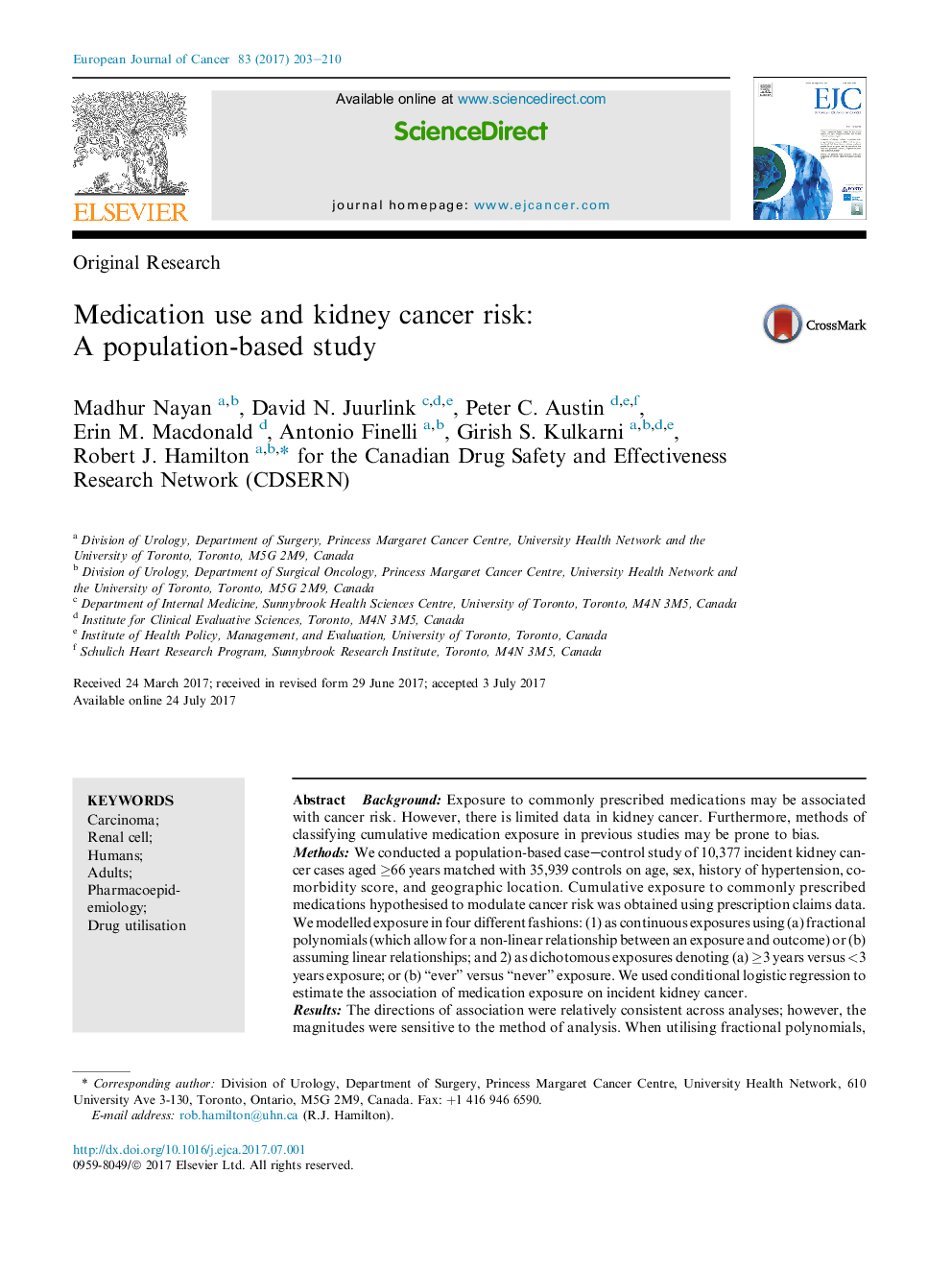| Article ID | Journal | Published Year | Pages | File Type |
|---|---|---|---|---|
| 5526400 | European Journal of Cancer | 2017 | 8 Pages |
â¢Commonly prescribed medications may be associated with the risk of kidney cancer.â¢We performed a case-control study of 46,316 individuals from Ontario, Canada.â¢Increasing use of acetylsalicylic acid, selective serotonin reuptake inhibitors, or proton-pump inhibitors significantly reduced risk.â¢Increasing use of any antihypertensive medication significantly increased risk.â¢Our results suggest pharmacological interventions may reduce kidney cancer risk.
BackgroundExposure to commonly prescribed medications may be associated with cancer risk. However, there is limited data in kidney cancer. Furthermore, methods of classifying cumulative medication exposure in previous studies may be prone to bias.MethodsWe conducted a population-based case-control study of 10,377 incident kidney cancer cases aged â¥66 years matched with 35,939 controls on age, sex, history of hypertension, comorbidity score, and geographic location. Cumulative exposure to commonly prescribed medications hypothesised to modulate cancer risk was obtained using prescription claims data. We modelled exposure in four different fashions: (1) as continuous exposures using (a) fractional polynomials (which allow for a non-linear relationship between an exposure and outcome) or (b) assuming linear relationships; and 2) as dichotomous exposures denoting (a) â¥3 years versus <3 years exposure; or (b) “ever” versus “never” exposure. We used conditional logistic regression to estimate the association of medication exposure on incident kidney cancer.ResultsThe directions of association were relatively consistent across analyses; however, the magnitudes were sensitive to the method of analysis. When utilising fractional polynomials, increasing cumulative exposure to acetylsalicylic acid, selective serotonin reuptake inhibitors, and proton-pump inhibitors was associated with significantly reduced risk of kidney cancer, while increasing exposure to antihypertensive drugs was associated with significantly increased risk.ConclusionsOur study provides impetus to further explore the effect of commonly prescribed medications on carcinogenesis to identify modifiable pharmacological interventions to reduce the risk of kidney cancer.
